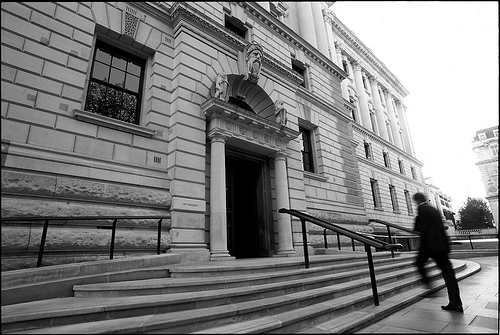
Thursday, 28 March 2013 12:30
Government publishes Finance Bill to enact March Budget

The Government has today published the Finance Bill which will enact the tax measures announced by Chancellor George Osborne since the March 2012 Budget.
The Bill includes measures which, according to the Chancellor, will support growth and enterprise, help working families, and ensure that "everyone pays their fair share of tax":
Among the measures are:
• increasing the tax-free personal allowance to £9,440 from April 2013;
• reducing the main rate of corporation tax for large companies to 21 per cent in 2014, and to 20 per cent in 2015;
• implementing a major package of measures to tackle tax avoidance and evasion, including the UK's first General Anti-Abuse Rule (GAAR); and
• introducing measures for the Government to sign contracts providing certainty over decommissioning relief on the UK Continental Shelf, potentially unlocking billions of pounds of additional investment
The Treasury says that the Bill demonstrates the Government's continued commitment to unprecedented levels of consultation and scrutiny in tax policy-making, in line with the 2010 document, Tax policy making, a new approach.
The majority of the measures in this year's Bill were announced in the Budget 2012, with legislation published in December 2012 for technical consultation, receiving over 250 comments.
{desktop}{/desktop}{mobile}{/mobile}
Following consultation on draft secondary legislation in December, the Finance Bill 2013 will also legislate to ensure those receiving the new Personal Independence Payment (PIP) and Armed Forces Independence Payment (AFIP) qualify for the relevant insurance premium tax relief.
Exchequer Secretary to the Treasury, David Gauke MP, said: "This year's Finance Bill demonstrates the Coalition Government's commitment to creating a tax system that is fairer, promotes growth and competitiveness and rewards work. These measures will equip us to compete in the global race and create an aspiration nation.
"They also demonstrate the Government's commitment to developing tax policy in a transparent manner, consulting wherever possible, which is reflected in the many constructive comments we have had on the draft legislation".
The Bill is formally known as Finance (No.2) Bill as it is the second Finance Bill of the current Parliamentary session. On Royal Assent it will become Finance Act 2013.
The Bill includes measures which, according to the Chancellor, will support growth and enterprise, help working families, and ensure that "everyone pays their fair share of tax":
Among the measures are:
• increasing the tax-free personal allowance to £9,440 from April 2013;
• reducing the main rate of corporation tax for large companies to 21 per cent in 2014, and to 20 per cent in 2015;
• implementing a major package of measures to tackle tax avoidance and evasion, including the UK's first General Anti-Abuse Rule (GAAR); and
• introducing measures for the Government to sign contracts providing certainty over decommissioning relief on the UK Continental Shelf, potentially unlocking billions of pounds of additional investment
The Treasury says that the Bill demonstrates the Government's continued commitment to unprecedented levels of consultation and scrutiny in tax policy-making, in line with the 2010 document, Tax policy making, a new approach.
The majority of the measures in this year's Bill were announced in the Budget 2012, with legislation published in December 2012 for technical consultation, receiving over 250 comments.
{desktop}{/desktop}{mobile}{/mobile}
Following consultation on draft secondary legislation in December, the Finance Bill 2013 will also legislate to ensure those receiving the new Personal Independence Payment (PIP) and Armed Forces Independence Payment (AFIP) qualify for the relevant insurance premium tax relief.
Exchequer Secretary to the Treasury, David Gauke MP, said: "This year's Finance Bill demonstrates the Coalition Government's commitment to creating a tax system that is fairer, promotes growth and competitiveness and rewards work. These measures will equip us to compete in the global race and create an aspiration nation.
"They also demonstrate the Government's commitment to developing tax policy in a transparent manner, consulting wherever possible, which is reflected in the many constructive comments we have had on the draft legislation".
The Bill is formally known as Finance (No.2) Bill as it is the second Finance Bill of the current Parliamentary session. On Royal Assent it will become Finance Act 2013.
This page is available to subscribers. Click here to sign in or get access.
Published in
Articles
